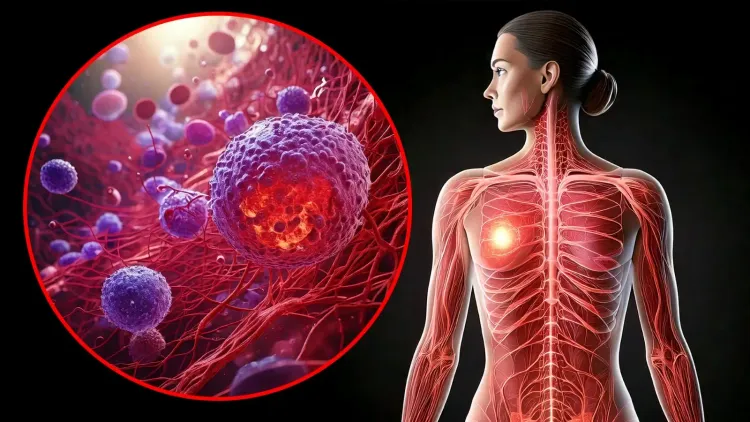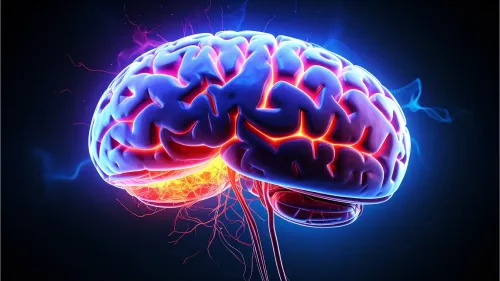Could the High-Fat Keto Diet Increase Breast Cancer Risk?

Synopsis
Key Takeaways
- Keto diet popular for weight loss may pose health risks.
- High lipid levels linked to increased breast cancer risk.
- Research indicates fat dependency in breast cancer cells.
- Lipid-lowering treatments could benefit obese patients.
- High-fat diets may lead to unintended tumor growth.
New Delhi, Oct 16 (NationPress) The keto diet, characterized by high fat and low carbohydrates, is widely embraced for weight loss. However, a new study conducted on animals raises concerns that it may elevate the risk of a particularly aggressive form of breast cancer.
Research from the University of Utah, USA, revealed that elevated lipid levels resulting from fatty acids—a common characteristic of obesity that encourages tumor growth—can also heighten the likelihood of developing triple-negative breast cancer.
This study utilized preclinical mouse models and indicates that breast cancer patients and survivors who are also obese might find relief from lipid-lowering treatments and should steer clear of high-fat weight loss diets like the ketogenic diet.
“The significant takeaway is that the role of fats and lipids in the broader context of obesity is often underestimated,” stated Keren Hilgendorf from the Huntsman Cancer Institute.
“Our research indicates that breast cancer cells exhibit a strong dependency on lipids, and the excess of lipids in obese patients contributes to the heightened prevalence and aggressiveness of breast cancer,” Hilgendorf further elaborated.
The research team examined mouse models on high-fat diets, utilizing engineered models that displayed hyperlipidemia—excessive lipids in the blood—absent of other obesity indicators like elevated glucose and insulin levels.
The results, published in the journal Cancer and Metabolism, demonstrated that high lipid levels were sufficient to expedite tumor growth. Notably, reducing lipid levels in conjunction with high glucose and insulin levels was effective in decelerating breast cancer cell proliferation.
Crucially, the study highlighted that while a keto diet may facilitate weight reduction, which is critical for cancer patients, its high-fat composition can lead to serious unintended consequences, potentially even promoting tumor growth.
The implications of this study suggest that lipids could also stimulate tumor growth in obese patients suffering from other cancers, including ovarian and colorectal cancers.









